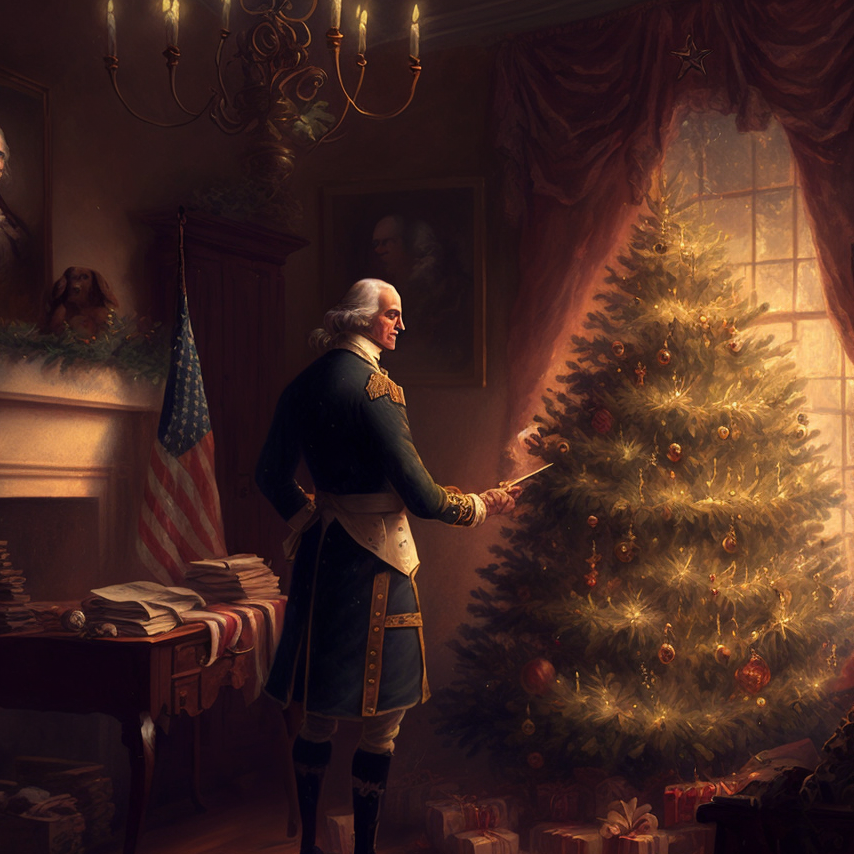
The Crossing of the Delaware
Something else worth celebrating at Christmas
In December of 1776, the rebellion in Britain’s American colonies was hanging by a thread. Across the Atlantic, the French had been eagerly monitoring the situation, thrilled to watch their greatest adversary be undermined, but enthusiasm was dwindling and the general consensus was settling on the bleak likelihood that George Washington and his men didn’t stand much of a chance.
That consensus wasn’t off base. The British Empire was a behemoth. Their military was highly trained and organized. The rebels had garnered only slight support from the other colonists. Many of their neighbors were staunch loyalists. Even those that did support their efforts knew that going up against the British was a nearly impossible undertaking. Washington’s army, comprised of volunteer militiamen, didn’t have the supplies needed for a legitimate fight, and without help they would surely have been stamped out.
The revolution needed a miracle. This came in the form of a daring feat of strategic genius. George Washington led his men across a frozen river in the dead of night through intense wind, cold, ice, and snow. They all risked frostbite just by exposing themselves to the elements. They risked execution by participating, a sentiment perfectly encapsulated by the operation’s password: “Victory or Death.”
Despite the brutal weather the men made their way to Trenton New Jersey where the Hessians, German soldiers hired by the British, were quartered. The surprise attack was launched in the early morning hours of December 26th, 1776. It was a shocking success. The Hessians were caught completely off guard. By attacking the half-asleep Germans from two directions, Washington decisively defeated them. After a brief fight, they had lost approximately 20 men with an additional 90-100 wounded. Only 4 of Washington’s men suffered injury in the battle; two froze to death on the frigid trek to Trenton. Roughly 1,000 Hessians were taken prisoner and their supplies and artillery were confiscated.
This shocking victory showed the world that the revolutionaries couldn’t be disregarded just yet. More importantly, it reinvigorated the French interest in the war. When word reached King Louis XVI’s court by way of Benjamin Franklin, the King of France sent desperately needed weapons and supplies to the brave men fighting against King George’s reign. This aid contributed to another major victory in October of 1777 at the Battle of Saratoga where 90% of the Continental Army was equipped with French weapons. As the scrappy Patriots grew in numbers, Louis sent his Navy out to cause trouble for the British in distant ports to keep their forces stretched across the globe. This clever move prevented King George from throwing everything he had at the colonies and squashing the revolution once and for all.
‘Washington Crossing the Delaware’ is one of the most recognizable paintings in Americana, but somehow the meaning is lost to most people. James Monroe and James Madison were among Washington’s men that day. Both would go on to become Presidents of the country they were creating. This operation single-handedly changed the tide of the war. Without it, there’s a good chance we’d be using money with the Queen’s face on it.
We may not commemorate this event with a holiday like we should, but now more than ever it is important to remember these men and their achievements. Sometimes it only takes a few good men to stop a tyrant. Sometimes the shepherd boy slays the giant.
